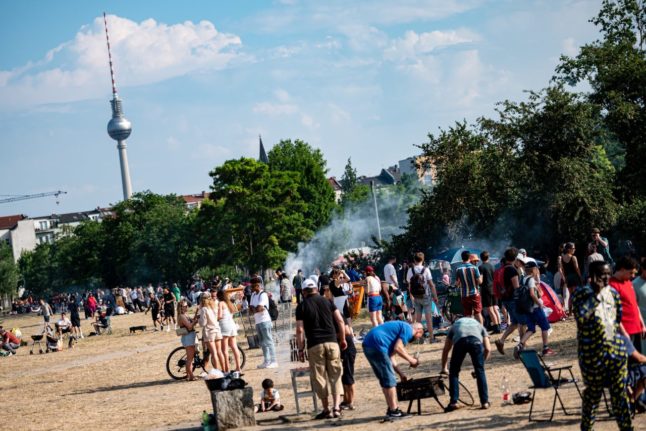“Practising Muslims will find a way to pray one way or another and they'll find a place,” Ender Cetin, chairman at the Sehitlik Mosque in Berlin, told The Local.
If the mosque is too far away, they'll find a corner to do it in, he says.
“You easily feel discriminated against by people if they don’t talk to you and then say, 'you can’t practice your religion as you are used to',” Cetin warns.
But several leading universities see things differently and a spate of decisions to close prayer rooms has led to claims of discrimination.
'Security threat'
The Technical University in Dortmund has permanently closed down its prayer room – which was intended for people of all faiths – Die Welt reported in February.
The university says that Muslim men had tried to take it over by imposing gender segregation (with a prayer space for men larger than that for women) and storing prayer mats inside.
“The attempt to create a pan-religious meditation space has failed,” said a spokesperson.
But Muslim students accuse the university of placing them under general suspicion and 400 names were gathered for a petition accusing the university administration of discriminating against them.
Particularly upsetting was the university’s explanation that the room was closed for “security reasons” – potentially leading people to believe the Muslims using it were practising radical forms of Islam such as Salafism.
'Not enough space'
At the university of Essen-Duisburg, a room for Muslim students that existed for more than 20 years has also been closed.
Officials stated in an official letter that the room had to be closed due to “matters of space for the students to study”.
“With more than 130 nations at our university, we can’t offer a room for every religion or culture,” the university said. “The room was installed in a time in which there were no places for Muslims to go nearby. This has changed in the past two decades.”
But part of the reason could also be that the institution received complaints from non-Muslim students that during prayer times certain activities became taboo, such as using the lift and toilets in the vicinity.
The prayer area is now to be replaced by a neutral “room of silence”.
At the Technical University in Berlin – an institution with 34,000 students – a Muslim prayer room which had been there for years has suddenly been closed.
Again, the argument seems to be one of space.
“The room was created in a time where the Muslim students had no place nearby to go for prayers,” Christian Thomsen, president of the university, said to Süddeutsche Zeitung (SZ).
“The next places for Muslim students to pray may be not in walking distance, but with a bus it’s just two or three stations away,” he added.
Unis not allowed to record religion
Just how much demand there is for prayer rooms is difficult to quantify.
German universities are not allowed to ask students about their religion, making it hard to know how many Muslims study at a particular institute.
“If we knew how many Muslim students there were here, we could use that to argue with the administrators,” one TU Berlin student told the SZ.
But not every university is choosing to mark itself as a place where religion has no role.
The University of Cologne is set to open a new prayer space in the summer.
“As a university, we always face conflict between secularism and religious freedom,” a spokesperson told the SZ.
But he said that many people of faith have certain necessities involved in praying “and they need a special room for these.”
Reporting by Raphael Warnke





 Please whitelist us to continue reading.
Please whitelist us to continue reading.